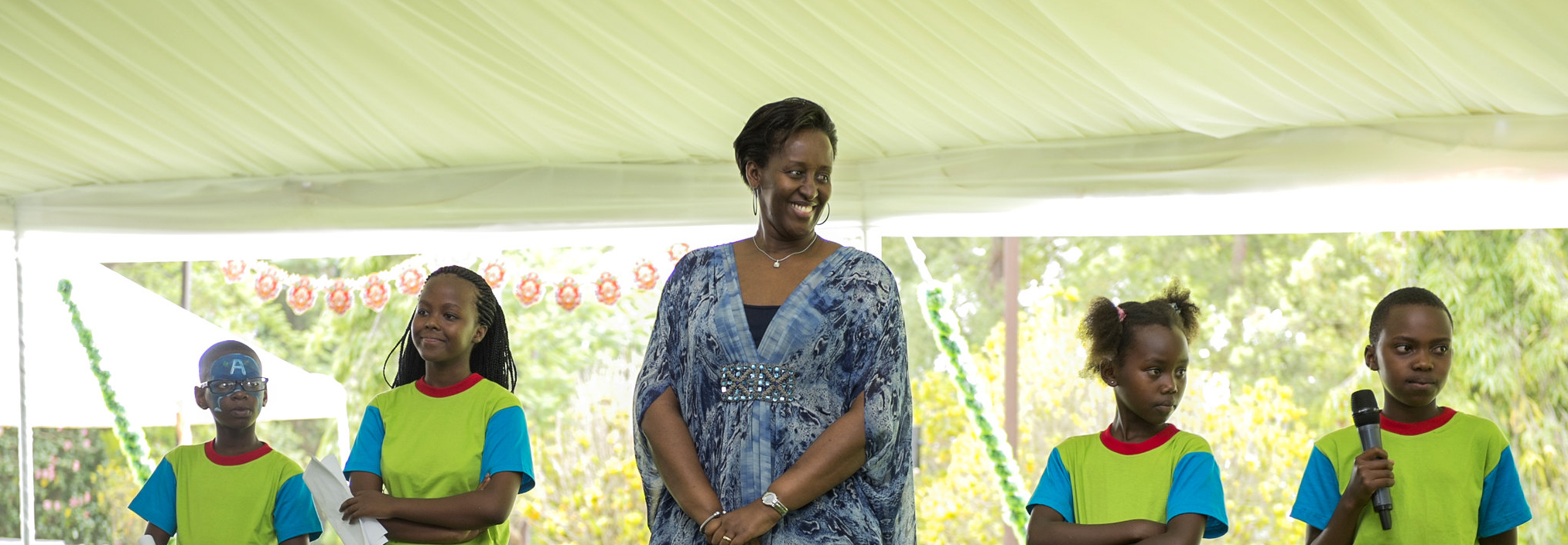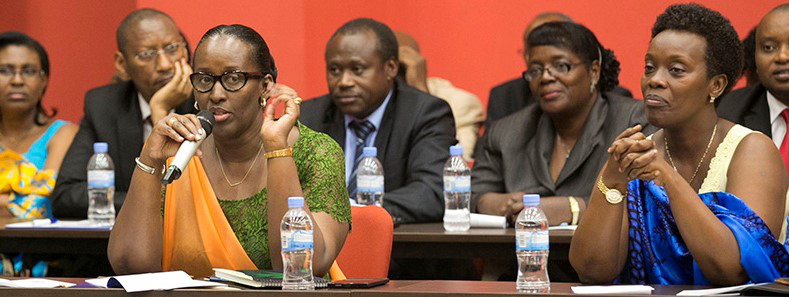More Updates


Our
Articles
With "Ndi Umunyarwanda" , Our Destiny Is In Our Hands
Go Back26 March 2014
There have been a series of sessions including high-level ones, on the respective role of every Rwandan in supporting this much-needed conversation dubbed Ndi Umunyarwanda, or I am a Rwandan and this conversation could not come at a better time.
Through this conversation, issues that are discussed may seem inconsequential to a third party alien to Rwandan national fabric, but yet these form a centre piece of erstwhile rich culture that was killed and literally buried with or by our abnormal past.
Background
Ours is a country that has had the most divisive politics of any post-independence Africa, so divisive that the resultant genocide cost us one million of our comrades who were not considered Rwandans by various post-colonial regimes.
Our history is too treacherous that one can only wish to forget it, and move on with our lives, hoping that tomorrow will resurrect our Rwandanness (Ubunyarwanda) with passage of time.
But this would simply be national utopia, for such an attitude will only serve to postpone a serious problem, and one that could stifle our identity and nationhood and by extension our future.
We lost our identity and indeed humaneness as a people when anything Rwandan was synonymous to genocide, until recently. Ndi Umunyarwanda was even a taboo in the past, for this was taken to be Ndi genocidaire by third parties. Rwandese sunk as low as that.
Now, this is where visionary leadership makes all the difference, and one that will make a difference for the Rwanda of tomorrow, if only we Rwandans appreciate that we have with us a rare breed of leadership. One that has been dubbed un-African by many foreign friends and stakeholders, a leadership we can honestly hold onto for even more delivery of public good.
That our exemplary leadership under President Paul Kagame, and First Lady Jeannette Kagame (who chairs Unity Club, through which Ndi Umunyarwanda was first discussed by top leaders of the nation), did see the issue worth discussing and by extension resolving as a nation, and a people, shows the highest degree of discernment of our leadership, and one that we owe more than a national debt.
Come to think of it, Ndi Umunyarwanda is really central to our nationhood, and with it, development of our country with the zest and nationalism crucial for our tomorrow as a viable nation.
Context
If one ponders on the above issue, and indeed takes a deep examination of conscience, the problem becomes an elephant. But not with Rwandans. We have the capacity, will and zeal to overcome any obstacles/calamities that befall us, and they have been many.
As a country, our past disastrous leadership left an indelible mark on our national conscience that we can neither negate, minimise nor ignore. Doing so does not cleanse our abnormal national conscience we have kept close to our hearts, which is mainly a result of the 1994 Genocide, that not only cost a million of our own, killed by our own, but also took with it the Rwandannes amongst us, without which our identity and indeed unity of purpose are mere figments of the same.
Such feeds back into the national fabric and undermines the well intended efforts of nation building, the scale of which cannot even be guessed.
Colonial legacy
And although we keep explaining our situation from the extreme divisive politics sowed by Belgian colonisers, a people who are even more divisive than any European nation today, a bizarre situation in these modern times.
But in Belgium divisions (between Wallons and Flemish communities) go to the extreme of living without a central government, unusual situation indeed.
Now, these divisions were exported to us in raw form, and we bought the same at the highest bidding possible resulting in serious social fractures in our society whose maxima was genocide.
As of now, the problem is no longer this colonial legacy, but rather why anyone in this millennium can allow an archaic colonial legacy to define his/her present/future with all consequences attendant, and they are priceless.
Thus, we cannot accept to be held hostage by our past, nor be prisoners of bizarre divisions exported to us by Belgian colonialists.
Rather, like we have managed as a country to over-come unimaginable calamities including stopping genocide by our own verve and vivacity informed by our national spirit of resilience which is also reinforced by the fact that, no one else, will ever resolve our intricate social fractures except ourselves.
Only our selves can cleanse this country the ghosts of our past so as to restore our Ndi Umunyarwanda spirit, absence of which contradicts our national philosophy – Agaciro. We owe this to ourselves, and to future generations.
Substance
However, Ndi Umunyarwanda programme is not meant to pass judgment to either actual or passive perpetrators of genocide, but rather to provide a platform through which these can give testimonies of what our elite and others either knew, did, or omitted to do.
To tell the truth, a truth that sets the individual free, and by extension sets the nation free. Living a pretentious life as a society is only dangerous for in the extreme will compromise the entire reconciliation process, and with it the essence of our nationhood.
And although this is yet another homegrown solution to our abnormal history, it is aimed at making this Rwanda of ours normal, by healing both hearts—victims and perpetrators alike.
For literally, every Rwandan was affected by genocide directly or at the very least indirectly, which is why Ndi Umunyarwanda is aimed at building confidence bridge which would then bring about national cohesion and unity of purpose void of suspicion /pretence.
Irony
What is ironic in my opinion is that, it was much easier for ordinary Rwandan folks at Gacaca level to tell the truth, all truth, and give unheard testimonies of what happened during genocide than is the case with our elite.
Sitting in the sessions of Ndi Umunyarwanda programme, one gets the feeling that, some of our elite pray games with the memories of those of other leaders that certainly are in the know of what these comrades knew, did, or omitted to do during genocide.
But this smacks leadership virtues we need to have among our polity if we are to help our ordinary rural brothers and sisters to total healing by telling it all. In fact our rural folks and of late our youth have put the blame ball in the court of the elite, and rightly so.
And although quite a number have taken courage to look into the face of their heinous past, a few have not, in my opinion. We cannot build our country on suspicions nor on pretence that truth will die with time.
This should not happen. Rather, we need to break from our past for us to build a future. A future where all of us can be proud to say : Ndi Umunyarwanda : Turi abanyarwanda. Not a Hutu, not a Tutsi, not a Twa, not a victim, nor a perpetrator, but a Rwandan.
But this process calls for sound leadership, a leadership that has had moral latitude/audacity to convince both parties (victims and perpetrators - by action or omission) that for us to build a strong Rwanda, Ndi Umunyarwanda is necessary, now than before, for time heals and allows the heart to face the past heart, and hold the same accountable for its past.
Professor Nshuti Manasseh, Economist and Financial Expert.
More Updates

